
SUSTAINABLE Becki Retzlaff’s Guide to Backyard Sustainability
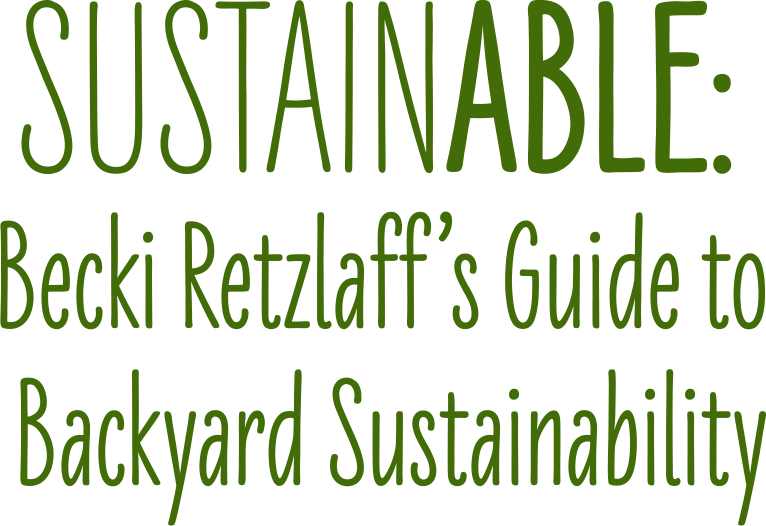
Bees are less intimidating than they probably sound.
ecause, for the most part, they just do their own thing. Except we feed them a lot of sugar water, because it makes them work less to go find what they need to exist. They are going out there pollinating everything, but just in case it’s cold or there’s not a lot of flowers blooming, then we feed them until they begin to produce a lot of honey and then we stop.
The biggest misconception about keeping bees is probably that it’s scary and you get stung all the time. If you work with the bees at the right time of day, they are too busy to sting you. They’ll buzz around you because they’re curious about what you’re doing, but they’re not going to sting you. The only time you usually get stung is if you get one caught in the fold of your skin or your hair.
We got lots of honey last year. I give it to friends and I use it in place of sugar for everything, like making cakes with honey and putting it in my coffee.
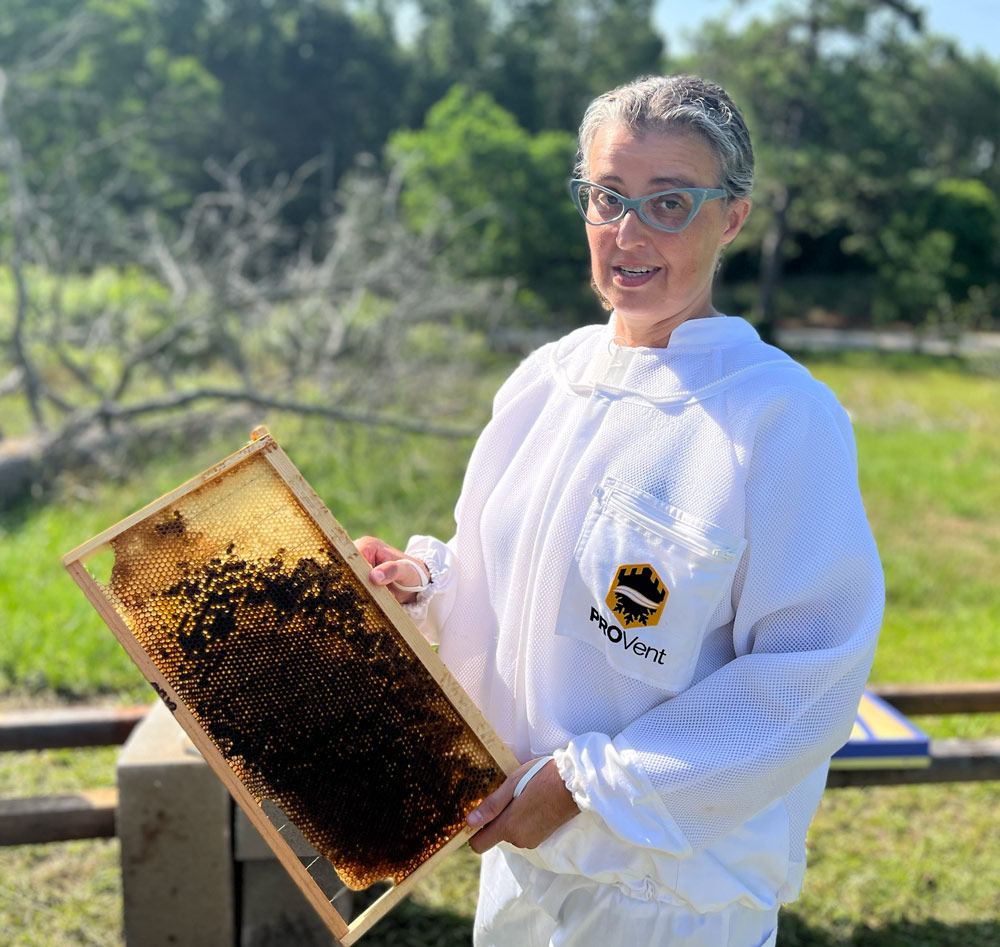
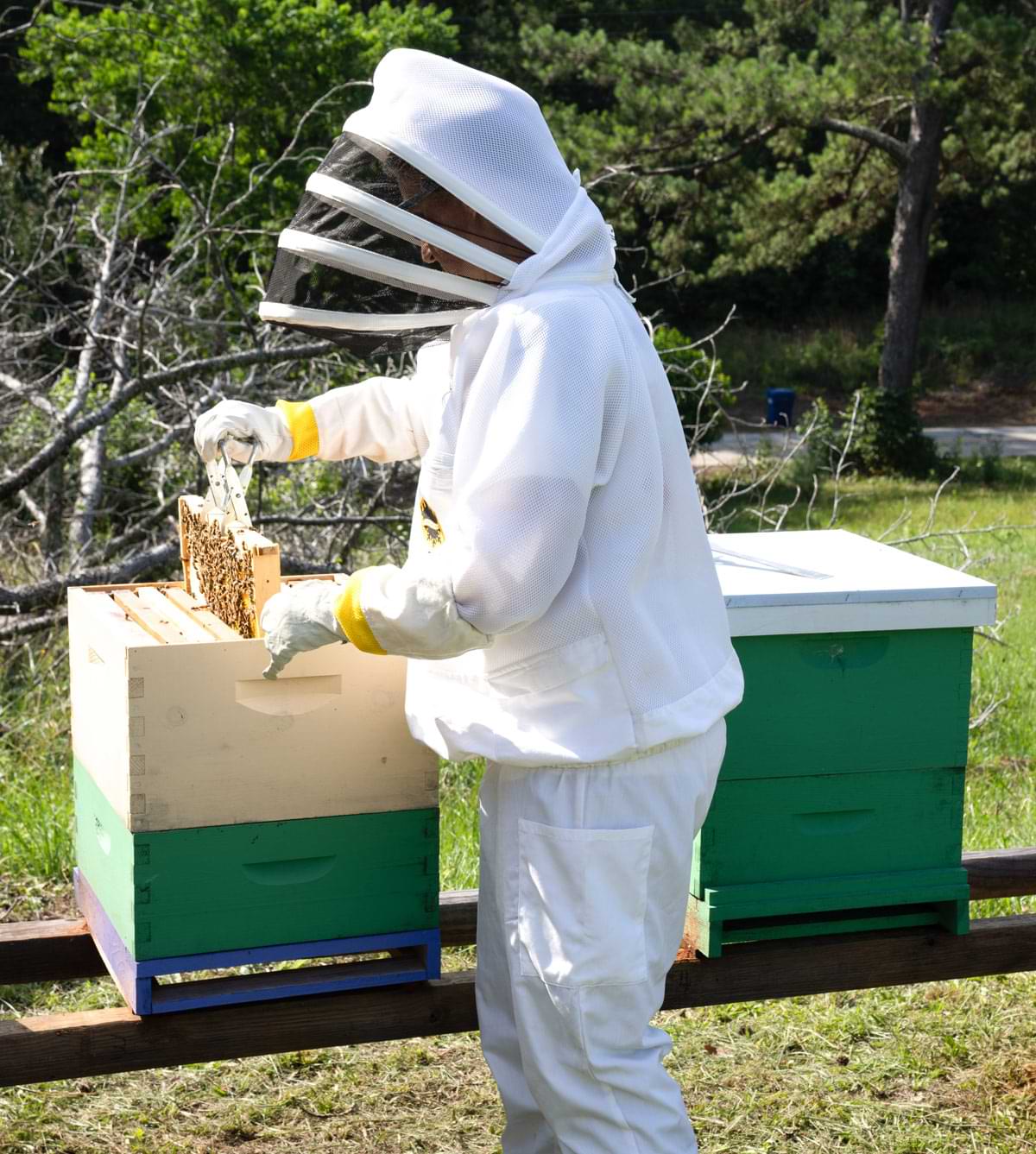
Chickens are the easiest pets.
e have four chickens, which is a good number for us because it gives us enough eggs for ourselves, and not have so many that we eat eggs for every meal. If you have to leave for a week and the chickens are alone, all you have to do is fill them up with food and water. And they’re super funny. They’re not smart at all, so they do just the silliest things.
My friend Meadows and I, along with Matt Williams, who used to work for the Office of Sustainability, and a former city council person, Shelia Eckman, were the people who got the zoning law allowing chickens passed in the city. We took a petition, which had at least 500 signatures, to the city council and they passed it unanimously. There was a lot of support for allowing urban chickens. There are certain rules about spacing from the house and not disturbing your neighbors with roosters, but it was a big success. I’m still really proud of it. I tell all of my students that story every semester.
Keeping chickens is super fun and they give us eggs for many years. Our oldest chickens are about seven or eight years old. So, we get fresh eggs whenever we want. We get just enough, and we’re not buying eggs in the store or having eggs shipped across the country from a factory farm. We’re nice to the chickens. We love them. The only thing we have to worry about is watching out for hawks.
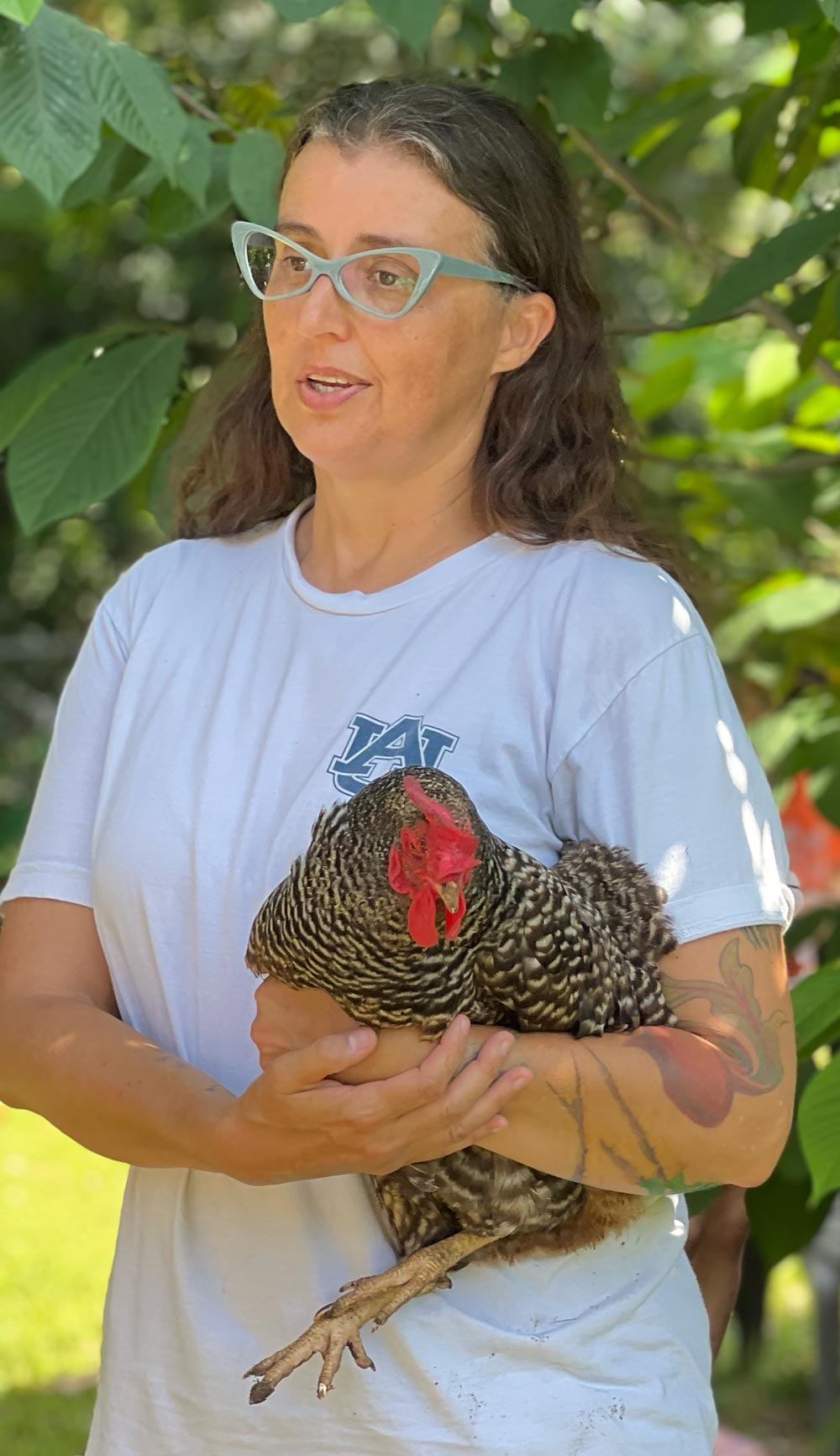
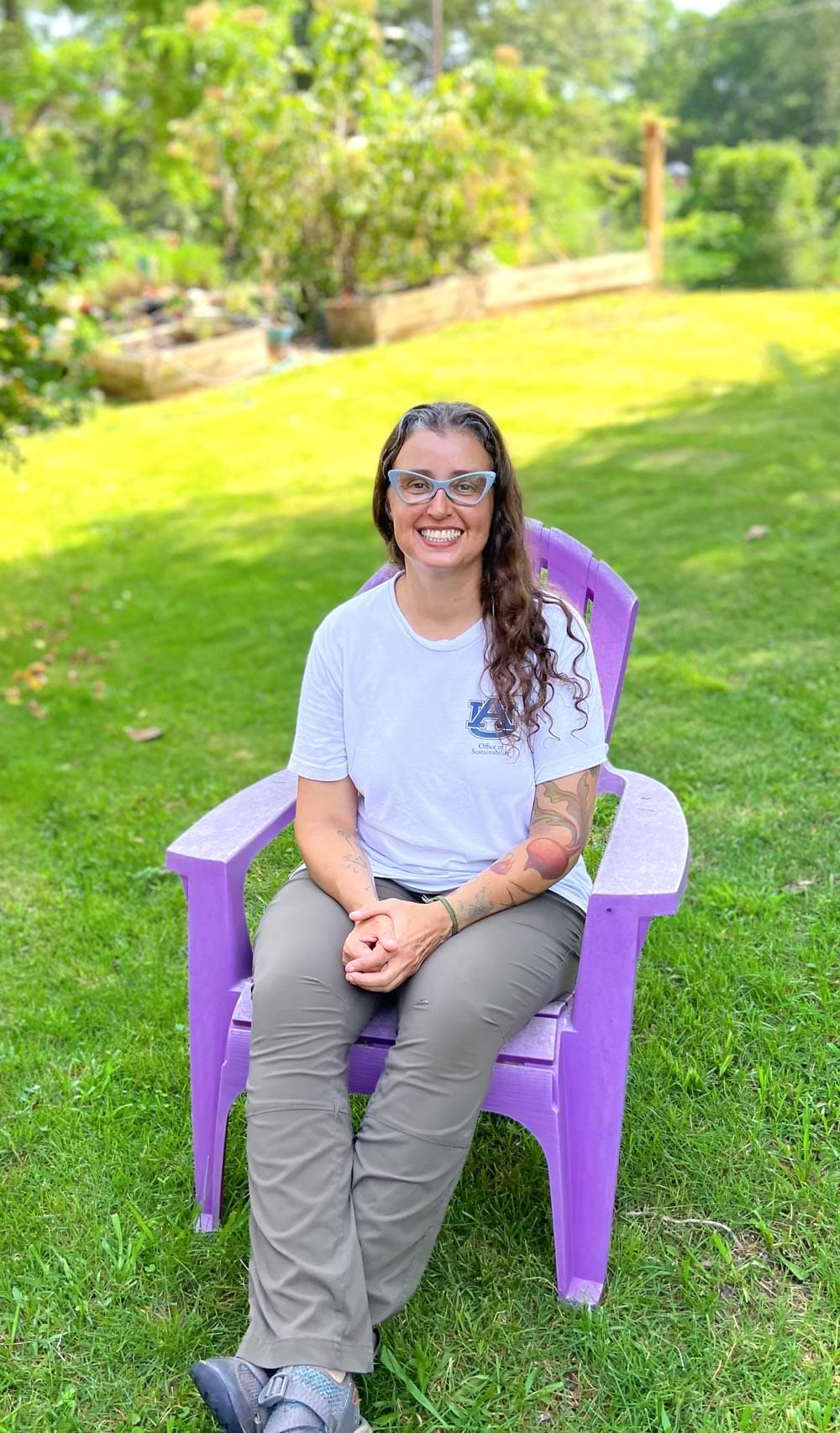
Plant things that are useful or beautiful to you.
f you ever cook with bay leaves, it’s a good idea to just plant a Bay Tree because bay leaves are super expensive, but the trees are very easy to grow. Garlic also grows like crazy in the south, so it’s good to plant that in your garden, too. We also grow pumpkins for my kids to have in the fall. I grow a few tomato plants and a lot of lettuce in the spring, plus other seasonal vegetables. Alabama is a great place to garden because you can grow vegetables year-round.
Everything else is herbs and flowers. The swamp sunflower, for example, is a native sunflower and in the fall, it gets really tall and blooms just zillions of amazing sunflowers. By that time of year, everything has already died by then but these amazing sunflowers bloom all over. So, they earn their keep by being really beautiful in the fall.
Before we had a garden at home, I gardened at the community garden on campus with my friend in the biology department. She taught me this great trick of using boxes and newspaper to cover weeds in the garden, so they don’t grow, and you don’t have to pull many weeds. It works like a charm – we put boxes and mulch and the chicken compost over it and the boxes eventually turn into dirt and add organic matter.
We also grow native carnivorous plants, like pincher plants, using planters with holes cut into them midway down the pot so that the bottom of the plants are always wet. In the winter, to protect our citrus trees, we make a little hoop house out of PVC pipes and plastic to cover the trees, then leave a big 55-gallon black drum of water in the sun. The water gets warm in the daytime and by nighttime, it lets out enough heat that it keeps the citrus trees warm enough to survive our colder nights.
You can integrate sustainability into whatever you’re interested in.
Because the sustainability minor is a campus-wide minor, we’re teaching students how to implement sustainability in all of these different areas. So, a person from the economics department may complete the sustainability minor and then graduate and work on sustainable economies. The student from the transportation engineering program may add the sustainability minor and work on walkable communities, and so on.